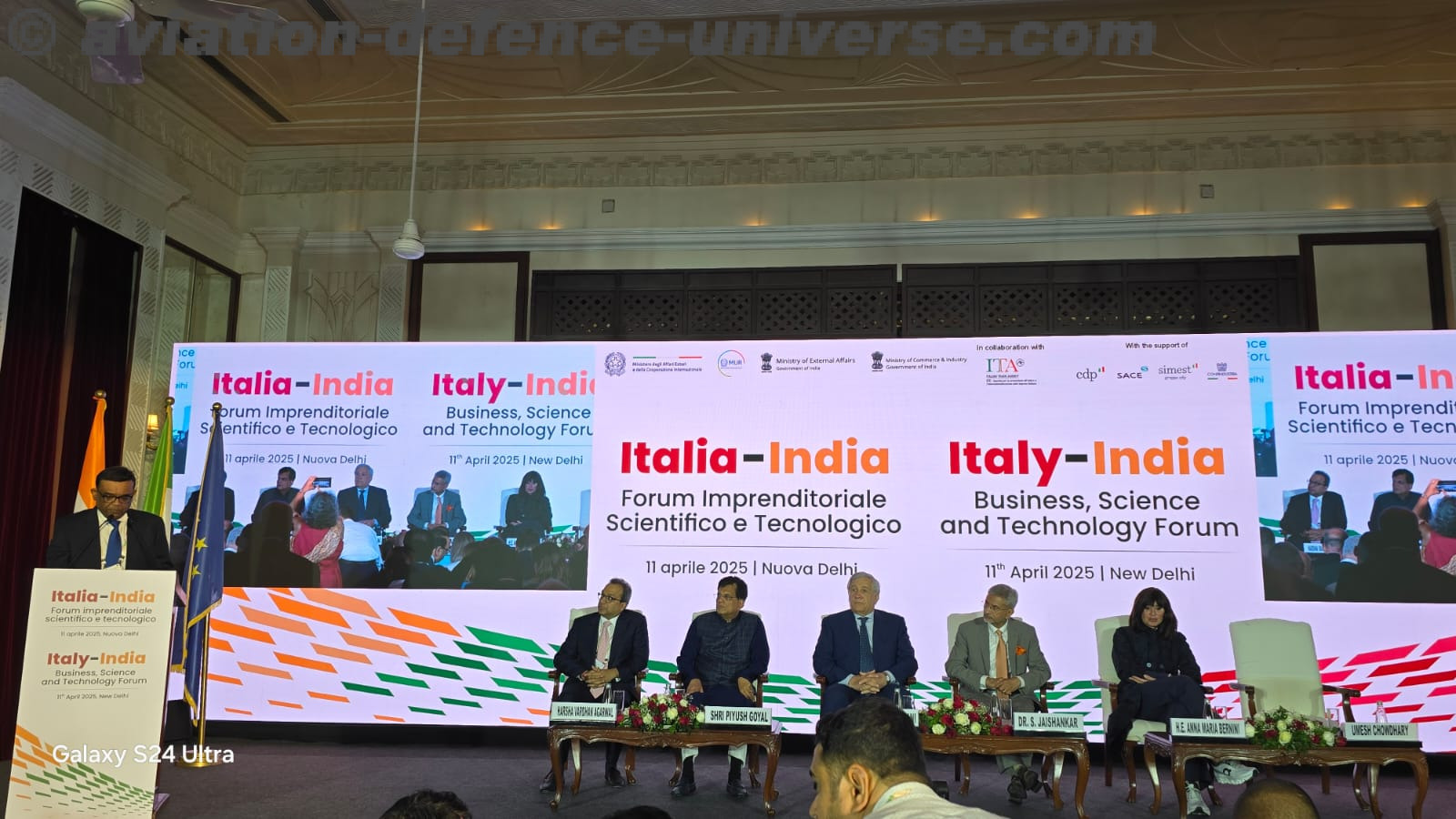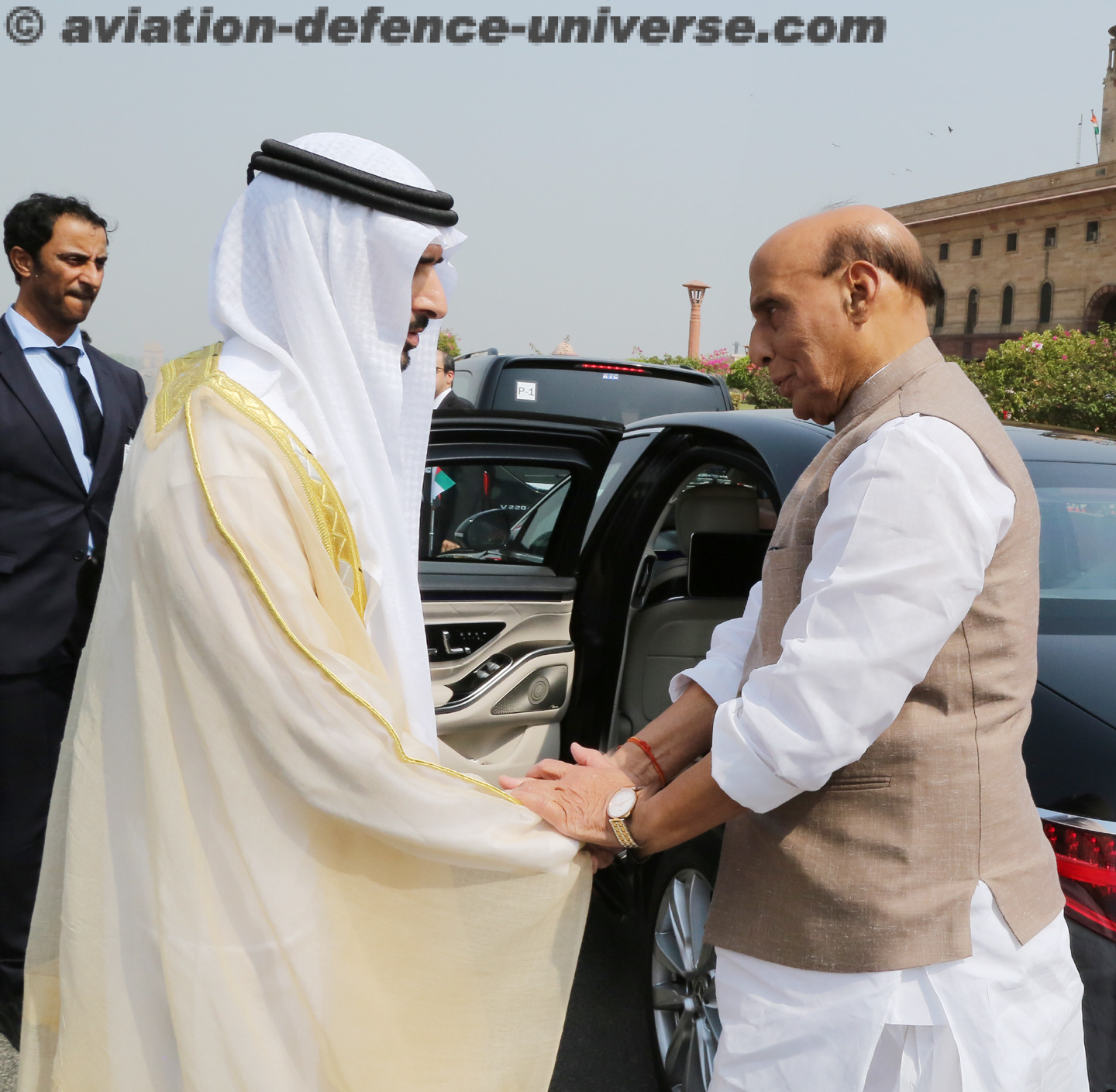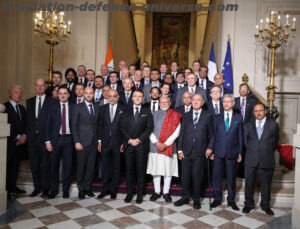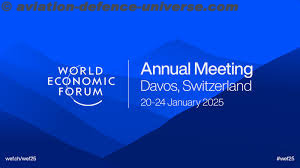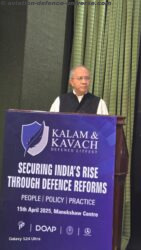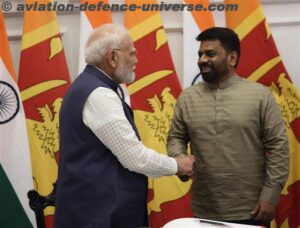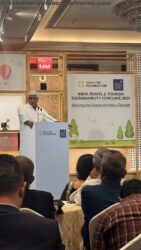- Make in India Meets Italian Tech: New Era of Indo-Italian Cooperation Begins
- AI, Space, Defence: India-Italy Target Future-Ready Sectors in Strategic Action Plan
By Sangeeta Saxena
New Delhi. 13 April 2025. India and Italy reaffirmed their commitment to forging a future-focused partnership across innovation, technology, defence and trade during the ‘Italy-India Business, Science and Technology Forum’ held in New Delhi. The forum was part of the implementation of the Joint Strategic Action Plan 2025–29, signed by both governments.
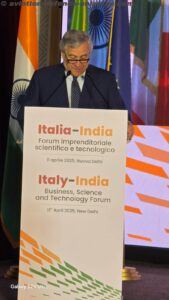 Antonio Tajani, Deputy Prime Minister and Minister of Foreign Affairs & International Cooperation of Italy, underscored the importance of this partnership, especially in maintaining stability in the Indo-Pacific region. “Stability is key to strengthening trade. India is a major strategic player with immense economic potential,” he noted. Tajani emphasized that innovation, artificial intelligence, supercomputers, space technology, and defence offered fertile ground for joint ventures. “Italy and India are natural economic partners, and we want to strengthen our cooperation in higher education, research, and future-ready sectors,” he said.
Antonio Tajani, Deputy Prime Minister and Minister of Foreign Affairs & International Cooperation of Italy, underscored the importance of this partnership, especially in maintaining stability in the Indo-Pacific region. “Stability is key to strengthening trade. India is a major strategic player with immense economic potential,” he noted. Tajani emphasized that innovation, artificial intelligence, supercomputers, space technology, and defence offered fertile ground for joint ventures. “Italy and India are natural economic partners, and we want to strengthen our cooperation in higher education, research, and future-ready sectors,” he said.
India and Italy share a dynamic and evolving geopolitical relationship shaped by shared democratic values, strategic interests, and growing economic interdependence. Over the past decade, the bilateral partnership has gained momentum, expanding beyond traditional trade ties to encompass strategic sectors such as defence, cybersecurity, space, and emerging technologies. As the Indo-Pacific region becomes central to global power dynamics, Italy has shown increasing interest in engaging with India as a key player in maintaining regional stability, securing maritime trade routes, and promoting a rules-based international order.
In recent years, both countries have undertaken a strategic reset of their diplomatic ties, culminating in the elevation of their relationship to a ‘Strategic Partnership’ in 2023. This significant development was marked by high-level visits, including the exchange of state visits by Prime Minister Narendra Modi and Italian Prime Minister Giorgia Meloni. The Joint Strategic Action Plan 2025–2029 is a concrete manifestation of this new phase of engagement, outlining cooperation in critical areas such as artificial intelligence, green technology, climate action, energy security, and defence manufacturing.
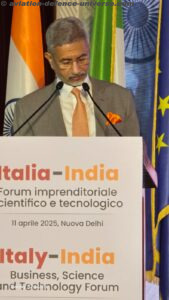 Dr S. Jaishankar, India’s Minister of External Affairs, highlighted the synergy between India’s rapid progress and the advanced capabilities of Italian industry. “Make in India today offers a platform for our collaboration to unfold,” he stated. Dr Jaishankar pointed out complementarities in sectors like energy, food processing, transport, and engineering, noting that Italy’s technologies and best practices could significantly accelerate growth in these domains. He also referenced India’s shifting growth model, now powered by innovation, AI, start-ups, EVs, drones, and space technologies.
Dr S. Jaishankar, India’s Minister of External Affairs, highlighted the synergy between India’s rapid progress and the advanced capabilities of Italian industry. “Make in India today offers a platform for our collaboration to unfold,” he stated. Dr Jaishankar pointed out complementarities in sectors like energy, food processing, transport, and engineering, noting that Italy’s technologies and best practices could significantly accelerate growth in these domains. He also referenced India’s shifting growth model, now powered by innovation, AI, start-ups, EVs, drones, and space technologies.
India values Italy as a gateway to the European Union, especially at a time when geopolitical alliances are being reconfigured in response to rising multipolarity, economic nationalism, and technological disruption. Italy, on the other hand, sees India as a vital partner in diversifying supply chains, enhancing trade resilience, and tapping into the growing opportunities presented by the Indian market, which is poised to become the third-largest economy in the world in the coming decades.
The convergence of Italian industrial capabilities and India’s push for self-reliance under the Aatmanirbhar Bharat and Make in India initiatives presents a strong foundation for deeper cooperation. As both countries seek to navigate complex global challenges — from energy transitions and digital governance to regional security threats — their strategic dialogue and joint initiatives signal a maturing relationship with the potential to contribute meaningfully to global peace and prosperity.
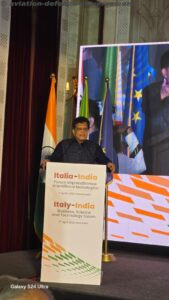 Adding momentum to the dialogue, Piyush Goyal, India’s Minister of Commerce & Industry, emphasized the tremendous growth opportunity in bilateral trade. He projected India’s economy to expand from $4 trillion to $30–35 trillion by 2047. “Our Viksit Bharat vision makes India a natural partner for deeper engagement with Europe—especially Italy,” he said. Goyal also identified untapped sectors like fashion, pharmaceuticals, green tech, tourism, and luxury goods as ripe for collaboration. “This forum is a timely platform to implement the Joint Strategic Action Plan 2025–29 announced by our leaders last year,” he added.
Adding momentum to the dialogue, Piyush Goyal, India’s Minister of Commerce & Industry, emphasized the tremendous growth opportunity in bilateral trade. He projected India’s economy to expand from $4 trillion to $30–35 trillion by 2047. “Our Viksit Bharat vision makes India a natural partner for deeper engagement with Europe—especially Italy,” he said. Goyal also identified untapped sectors like fashion, pharmaceuticals, green tech, tourism, and luxury goods as ripe for collaboration. “This forum is a timely platform to implement the Joint Strategic Action Plan 2025–29 announced by our leaders last year,” he added.
Trade between India and Italy has witnessed a significant upswing in recent years, reflecting the deepening economic engagement between the two nations. As of 2024, bilateral trade crossed the USD 14 billion mark, driven by a strong complementarity in sectors such as engineering goods, automobiles, textiles, machinery, chemicals, pharmaceuticals, food processing, fashion, and luxury goods. Italy has emerged as India’s fourth-largest trading partner within the European Union, while India remains one of Italy’s key partners in South Asia.
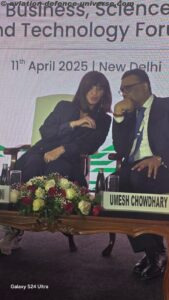 Italy’s advanced manufacturing capabilities and technological innovation have found a growing market in India, particularly in sectors such as automotive components, industrial machinery, and green technologies. At the same time, India’s expanding economy and its robust service and pharmaceutical sectors have created strong export potential for Indian businesses to tap into the Italian market. Initiatives like Make in India, Atmanirbhar Bharat, and PLI schemes have also made India an attractive destination for Italian investors looking to diversify their supply chains and establish a manufacturing presence in Asia.
Italy’s advanced manufacturing capabilities and technological innovation have found a growing market in India, particularly in sectors such as automotive components, industrial machinery, and green technologies. At the same time, India’s expanding economy and its robust service and pharmaceutical sectors have created strong export potential for Indian businesses to tap into the Italian market. Initiatives like Make in India, Atmanirbhar Bharat, and PLI schemes have also made India an attractive destination for Italian investors looking to diversify their supply chains and establish a manufacturing presence in Asia.
Increased high-level political exchanges, such as the elevation of ties to a Strategic Partnership and the launch of the Joint Strategic Action Plan 2025–2029, have further catalyzed trade and investment flows. Forums like the India-Italy Business, Science and Technology Forum and the Italy-India CEO Forum have provided platforms for dialogue between industry leaders and policymakers, helping to identify new avenues of cooperation and remove trade barriers.
With both countries keen on enhancing economic resilience in a post-pandemic and geopolitically volatile world, the focus on sectors like renewable energy, digital infrastructure, aerospace, and defence manufacturing is likely to define the next phase of India-Italy trade relations. As India aims to become a USD 30–35 trillion economy by 2047, Italy’s participation in this growth story is expected to expand, making trade a vital pillar of the bilateral partnership.
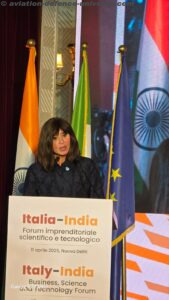 Italian Minister of Universities and Research, Anna Maria Bernini, praised the mutual commitment of both nations to sustainable development, social transformation, and innovation. She noted that both countries were pushing ambitious reforms and investments in their academic and research ecosystems.
Italian Minister of Universities and Research, Anna Maria Bernini, praised the mutual commitment of both nations to sustainable development, social transformation, and innovation. She noted that both countries were pushing ambitious reforms and investments in their academic and research ecosystems.
India and Italy have steadily cultivated a robust academic partnership, marked by mutual recognition of the importance of education, research, and innovation in fostering long-term bilateral cooperation. This relationship is rooted in a shared commitment to excellence in higher education and scientific research, and has been enhanced by growing student exchanges, institutional collaborations, and joint research initiatives between universities and research bodies of both nations.
Several academic memoranda of understanding (MoUs) have been signed over the years between leading Indian institutions such as IITs, IISc, JNU, and private universities with Italian universities like the University of Bologna, Sapienza University of Rome, and Politecnico di Milano. These collaborations span areas like engineering, space sciences, biotechnology, renewable energy, fashion and design, and archaeology — disciplines where both countries bring rich intellectual and technological traditions. Joint PhD programs, faculty exchanges, and research mobility schemes have significantly enriched academic discourse and cultural understanding between the two nations.
Italy’s growing interest in India as a knowledge hub has also led to the establishment of bilateral science and technology cooperation programs. The Indo-Italian Executive Programme of Scientific and Technological Cooperation encourages joint research projects, workshops, and researcher mobility in key fields such as physics, nanotechnology, robotics, and life sciences. These programs are often co-funded and supported by national agencies including Italy’s Ministry of Foreign Affairs and International Cooperation and India’s Department of Science and Technology.
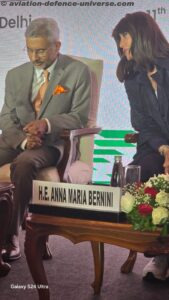 As India continues to internationalise its higher education ecosystem under the National Education Policy 2020, and Italy focuses on expanding its global academic footprint, the potential for deeper and broader cooperation remains vast. With shared goals in promoting innovation, sustainability, and inclusive development, the academic bridges between India and Italy are poised to play a crucial role in shaping the intellectual, technological, and cultural contours of the bilateral relationship in the decades to come.
As India continues to internationalise its higher education ecosystem under the National Education Policy 2020, and Italy focuses on expanding its global academic footprint, the potential for deeper and broader cooperation remains vast. With shared goals in promoting innovation, sustainability, and inclusive development, the academic bridges between India and Italy are poised to play a crucial role in shaping the intellectual, technological, and cultural contours of the bilateral relationship in the decades to come.
Industry voices also weighed in with optimism. Harsha Vardhan Agarwal, President of FICCI and Vice Chairman of Emami Limited, remarked on the heightened need for resilient economic ties amidst global uncertainty. “India and Italy, as like-minded economies, must strengthen their bond to navigate these challenges,” he said.
Echoing this sentiment, Umesh Chowdhary, Vice Chairman & MD of Titagarh Rail Systems Ltd., noted that the Indo-Italian relationship extended beyond economics. “We have shared values and a unique opportunity to shape a comprehensive, 360-degree engagement,” he observed.
Indo-Italian defence ties have gradually evolved from limited interaction to a more structured and forward-looking partnership, in alignment with the broader strategic cooperation between the two nations. In recent years, both India and Italy have shown a renewed commitment to deepen defence and security cooperation, driven by shared interests in maritime security, counter-terrorism, cyber defence, and the need to ensure peace and stability in the Indo-Pacific region.
A major milestone in this relationship was the signing of a Defence Cooperation Agreement in 2023, which laid the foundation for enhanced collaboration in defence manufacturing, joint training, technology transfer, and information sharing. Italy, with its advanced defence technology and strong industrial base, has emerged as a valuable partner for India’s drive towards Aatmanirbharta (self-reliance) in defence production. Italian defence companies such as Leonardo, Fincantieri, and Elettronica have expressed interest in forging partnerships with Indian counterparts in sectors like naval systems, aerospace, electronic warfare, and unmanned systems.
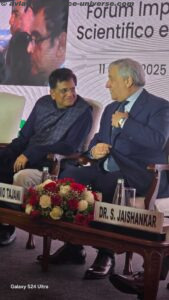 Maritime cooperation has also taken centre stage, given Italy’s prominent naval capabilities and India’s growing focus on securing its maritime interests in the Indian Ocean Region. Port visits by naval vessels, joint naval exercises, and dialogue between respective naval commands have contributed to confidence building and interoperability.
Maritime cooperation has also taken centre stage, given Italy’s prominent naval capabilities and India’s growing focus on securing its maritime interests in the Indian Ocean Region. Port visits by naval vessels, joint naval exercises, and dialogue between respective naval commands have contributed to confidence building and interoperability.
The two countries have also aligned their visions on promoting defence industrial collaboration under the Make in India framework. With Italy’s expertise in dual-use technologies and India’s growing ecosystem of defence start-ups, MSMEs, and DPSUs, the potential for co-development and co-production is expanding. Both nations have acknowledged that defence ties must be viewed not just through a transactional lens, but as a strategic imperative that supports peace, stability, and economic growth in an increasingly complex global environment.
As India continues to modernise its armed forces and emerge as a defence manufacturing hub, Indo-Italian defence ties are poised to become a key pillar of the bilateral strategic partnership, with long-term implications for regional security and industrial cooperation.
The Italy-India Business, Science and Technology Forum served as a strategic catalyst to push forward the implementation of the Joint Strategic Action Plan 2025–29. With a focus on emerging technologies, innovation, and resilient trade frameworks, both nations reinforced their intention to transition their longstanding friendship into a future-oriented, innovation-driven strategic partnership.